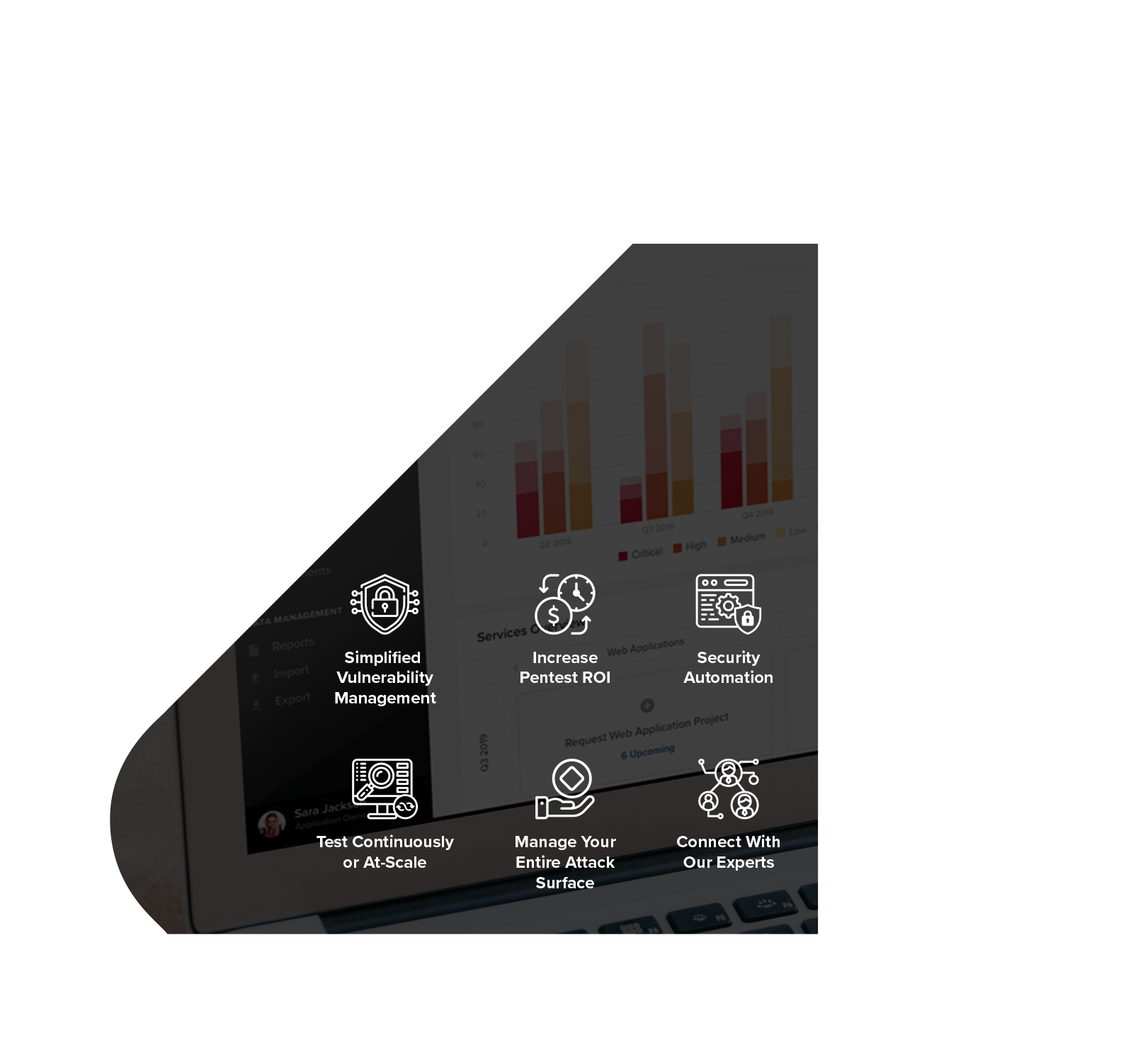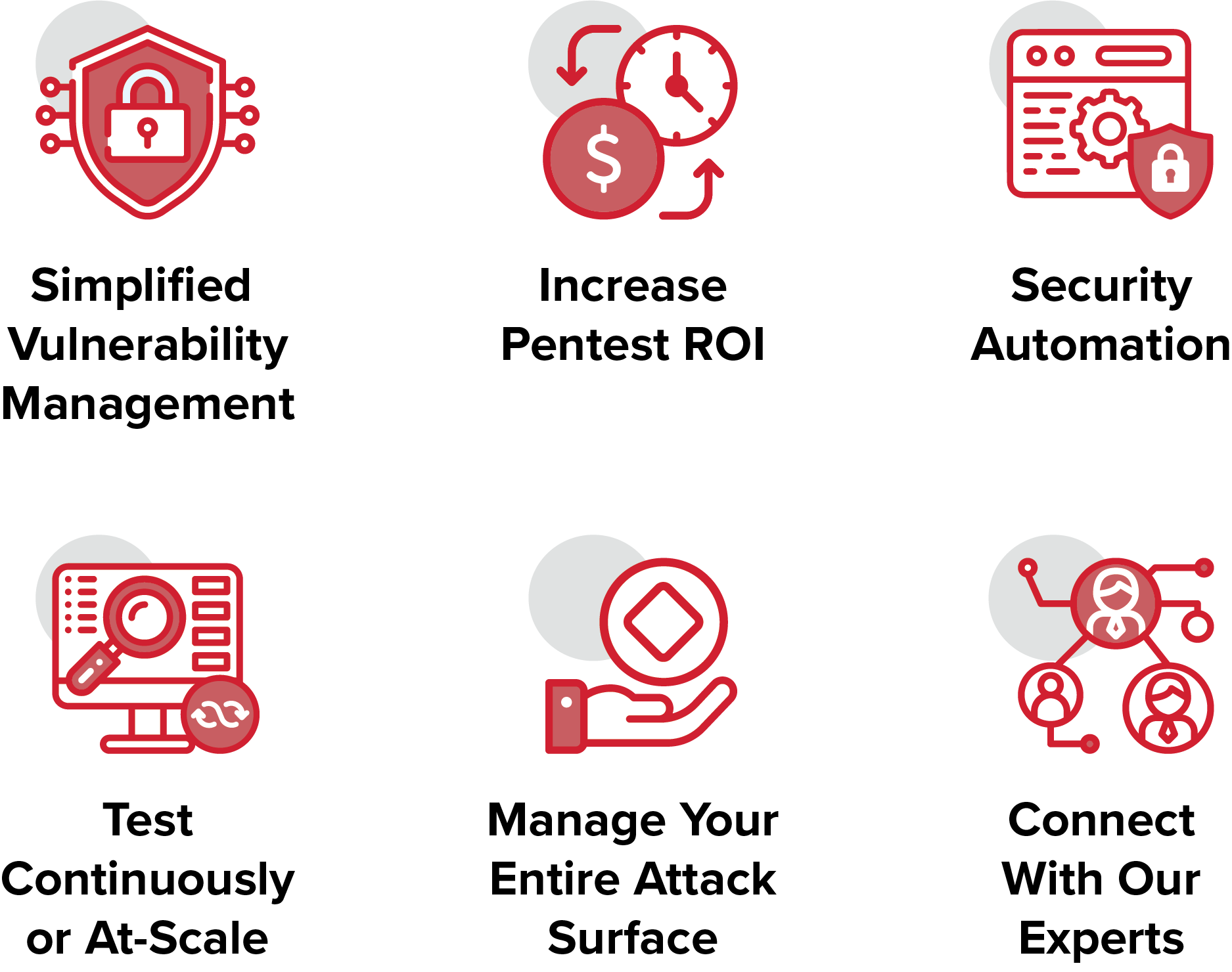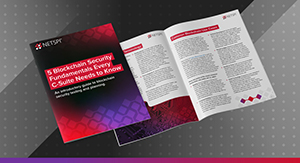Internal Network Penetration Testing
Vulnerabilities can be anywhere on your network. Our internal network penetration testing service identifies security gaps, provides actionable guidance on how to improve your network security, and helps you to meet compliance requirements, such as PCI DSS penetration testing.
Improve Network Security and Reduce Organizational Risk
Internal threats and cloud-based vulnerabilities create security risks when they extend into hosted environments with ties to internal networks. Internal network penetration testing simulates the actions of a skilled attacker and helps you find network security gaps that create security exposure and risk.
During our internal network penetration testing service, NetSPI identifies security vulnerabilities, such as patch, configuration, and code issues at the network, system, and application layers. This network security testing service provides actionable recommendations for remediation and identifies ways you can improve your network security program.

Our penetration testers find 20% more vulnerabilities by using our Resolve™ platform and proven methodology.

Internal Network Penetration Testing Service
Our network security experts pentest your in-scope networks and systems, which may include cloud infrastructure. Expert network pentesters follow manual and automated pentesting processes that use commercial, open source, and proprietary software to assess your infrastructure from the perspective of an anonymous (non-credentialed) user. We can also pentest your network infrastructure from the perspective of an authenticated user. Our collaboration during the project ensures that you understand the risks associated with the vulnerabilities we find and can implement the recommendations.
Our internal network penetration testing approach is based on best practices, including NIST SP 800-53, PCI DSS, OWASP Top 10, MITRE ATT&CK framework to encompass:
- System and service discovery
- Automated vulnerability discovery
- Vulnerability verification
- False positive removal
- Web application vulnerability discovery
- Network protocol vulnerability discovery
- Online password auditing of available interfaces
- Active Directory vulnerability discovery
- Vulnerability exploitation
- System-level privilege escalation
- Domain-level privilege escalation
- Offline password auditing of Active Directory accounts
- Sensitive networks, systems, and data access
- Segmentation testing for PCI DSS compliance, as required
TERMS TO KNOW
What is the OWASP Top 10?
The OWASP Top 10 is a list of the most critical security risks to web applications, identified by an industry consensus.
Adopting the OWASP Top 10 in your software development and security testing processes is a strong step in improving security for your business, your partners, and your customers.

OWASP Top 10
| A1 | Broken Access Control |
| A2 | Cryptographic Failures |
| A3 | Injection |
| A4 | Insecure Design |
| A5 | Security Misconfiguration |
| A6 | Vulnerable and Outdated Components |
| A7 | Identification and Authentication Failures |
| A8 | Software and Data Integrity Failures |
| A9 | Security Logging and Monitoring Failures |
| A10 | Server-Side Request Forgery |
Powered by Resolve™
Internal network penetration testing engagements are managed and delivered through Resolve, NetSPI’s PTaaS platform. Resolve elevates your vulnerability management and pentesting program.


